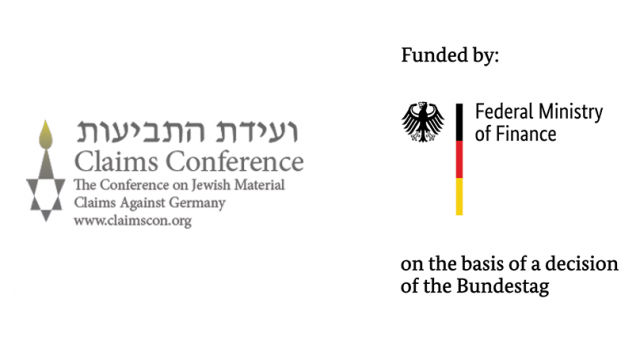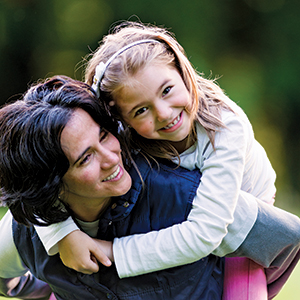Holocaust Survivor Services
JFCS’ commitment to Holocaust survivors is deep and enduring. Over the decades JFCS has provided thousands of survivors support and services to give comfort and strength. Today, nearly 80 years after the Holocaust, thousands of survivors live in Northern California.
JFCS offers help through our senior care program, Seniors at Home, our Reparations and Financial Aid Program, cultural engagement and peer support through Cafe by the Bay, and opportunities for survivors to engage with their communities and tell their stories through the Manovill Institute Conversation Circle and the William J. Lowenberg Speakers Bureau. See details below:
Seniors At Home
Seniors At Home, the award-winning senior services division of JFCS, helps older adults enjoy safe, healthier, more independent lives and provides peace of mind for families. Whether you are dealing with a life transition or crisis, are planning for the future, or need some personal support at home, Seniors At Home is here for you.
Seniors At Home offers a full continuum of care—including home care, dementia care, personal assistant services, care management, socialization programs, support for families, and much more.
Cafe by the Bay Gatherings for Survivors
Cafe by the Bay offers Holocaust survivors social gatherings to get together and gain strength and support from one another. Activities include musical performances, cultural and educational activities, lectures, and more.
Gatherings typically take place in San Francisco and the Peninsula. We welcome Survivors in any region to join.
Cafe by the Bay welcomes volunteers for serving refreshments, greeting and connecting with guests, and clean up. Find out more about this volunteer opportunity.
|
“Thank you for all you do to add spark to our golden years! We are so fortunate and blessed to have Cafe by the Bay and all your volunteers in our lives!” For Holocaust survivors in the Bay Area, JFCS’ Cafe by the Bay program remains a place of healing and connection, helping members feel supported and part of a loving community. |
Conversation Circle and William J. Lowenberg Speakers Bureau
The JFCS Holocaust Center’s innovative program, Conversation Circle, fosters meaningful connections between Holocaust survivors in the Bay Area and local high school students. The William J. Lowenberg Speakers Bureau shares Holocaust and genocide education through powerful survivor testimony, both in-person and online. Learn more by visiting the JFCS Holocaust Center website.
Reparations and Financial Aid
JFCS provides assistance with reparations applications to Holocaust survivors who may qualify for the Claims Conference Home Care Program. Through this program, survivors may be eligible for home care services provided by JFCS’ Seniors At Home program. Contact Seniors At Home at 415-449-3700 to get more information.
ZRBG Pension
Survivors who lived and worked in Nazi-controlled ghettos may be eligible for ongoing pensions from the German government. The definition of “work” is being broadly interpreted by the German courts. Survivors who prepared meals, swept streets, cleaned homes, worked in factories (outside of the ghetto but were forced to return to it at night), and performed other tasks are encouraged to apply. Widows and widowers of those who lived and worked in ghettos are also encouraged to apply.
GGWP Ghetto Compensation Fund
Ghetto survivors may be eligible for a one-time payment of 2,000 euros (about $2,500) for “non-coerced” work during the period they lived in Holocaust-era ghettos. The Shanghai Ghetto is included in this program, and the application is short. Germany has signed an order ending the prior deadline and will continue to allow survivors who did “voluntary” ghetto work to apply for compensation under the German Ghetto Work Program.
Hardship Fund Area Expanded
A one-time 2,556 euros sum (about $3,200) may be paid by this Claims Conference-managed program for certain Jewish Nazi victims from Eastern Bloc countries meeting eligibility criteria. (Prior Hardship Fund recipients may not re-apply.)
As of January 1, 2012, victims who may now be eligible include those who fled between June 22, 1941, and January 27, 1944, from areas of the Soviet Union that were generally up to 100 kilometers from the most easterly advance of the German army (Wehrmacht) but were not later occupied by the Nazis. They include Jews who fled from Moscow and Stalingrad during these dates. Eligible victims also include those who fled Leningrad after June 22, 1941, but before the siege that commenced in September 1941.
Unborn Victims
Germany has clarified that the Hardship Fund will process applications from applicants who were in utero at the time of their mother’s persecution.
Article 2 Fund
Article 2 Fund Liberalization—The Article 2 Fund is a Claims Conference-managed reparation fund providing ongoing monthly payments—paid quarterly—to eligible Holocaust survivors. The Claims Conference has again negotiated reduced eligibility requirements for receiving a monthly pension of 300 euros (about $380) through the Article 2 Fund. New rules now include victims who lived in ghettos, in hiding, or under false identity in Nazi-controlled areas for 12 months. It also includes Nazi victims who were in concentration camps for even very short periods.
New Article 2 Fund Category—Eligible survivors born in 1937 or earlier who were in a ghetto between three and 12 months may be entitled to a special monthly pension of 240 euros (about $300). This liberalization now allows inclusion of those who endured the Budapest Ghetto—the last major group of ghetto survivors who have yet to receive pensions.
Article 2 Fund programs are open to survivors who are not getting German B.E.G. fund payments (Wiedergutmachung) and meet eligibility guidelines.
Those previously denied should request a claim re-opening for re-evaluation under the new criteria.
Free application assistance is available, and survivors are encouraged to contact JFCS to obtain more information or to schedule an appointment for assistance. Our multilingual staff can provide assistance in English or Russian.
Social Services for Jewish Nazi victims have been supported by a grant from the Conference on Jewish Material Claims Against Germany.


